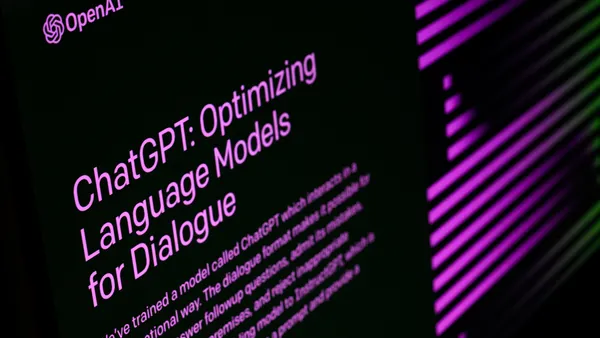Dive Brief:
- Artificial Intelligence is likely to affect 100% of jobs, according to research from the MIT-IBM Watson AI Lab. It won't eliminate most jobs but instead will change the way in which work is performed, researchers announced Oct. 29.
- Tasks that are most suitable for machine learning — such as scheduling or credential validation — are increasingly being automated. On the other hand, jobs that require soft skills like creativity and common sense have increased in value; jobs in hairstyling to graphic design all have seen wage increases in recent years.
- The researchers indicated that the rate of change has been slow but will soon pick up as businesses adopt more AI solutions. Before that happens, "employers across all industries must focus on reskilling their workforces, redesigning job roles and supporting career advancement," according to the press release.
Dive Insight:
The researchers' findings confirm what employers have reported in recent months: The demand for soft skills will only increase as automation takes hold.
In a Cengage survey released earlier this year, employers said they most needed workers who could listen, pay attention to detail, communicate effectively, think critically, demonstrate interpersonal skills and learn new skills.
Similarly, a recent Workhuman report concluded that, despite tech's ever-increasing presence in the workplace, the future of work will be people-focused, not machine centered. In fact, that future will create more opportunities for employers to "leverage the previously untapped creativity and innovation of people — to prioritize humanity and emotional intelligence at work," Workhuman said.
Employers may well be recognizing that opportunity: they identified "soft skills" as their top training priority in a LinkedIn poll last year. Leadership, communication and collaboration are all skills that can be taught, experts previously told HR Dive. But learning and development professionals will need to carefully craft such programming: LinkedIn said it recommends "learning pathways, or groups of courses, that build upon each other so that at time of completion, employees have a well-roundedness about their soft skills abilities and have gained an appreciation for continuous learning."











